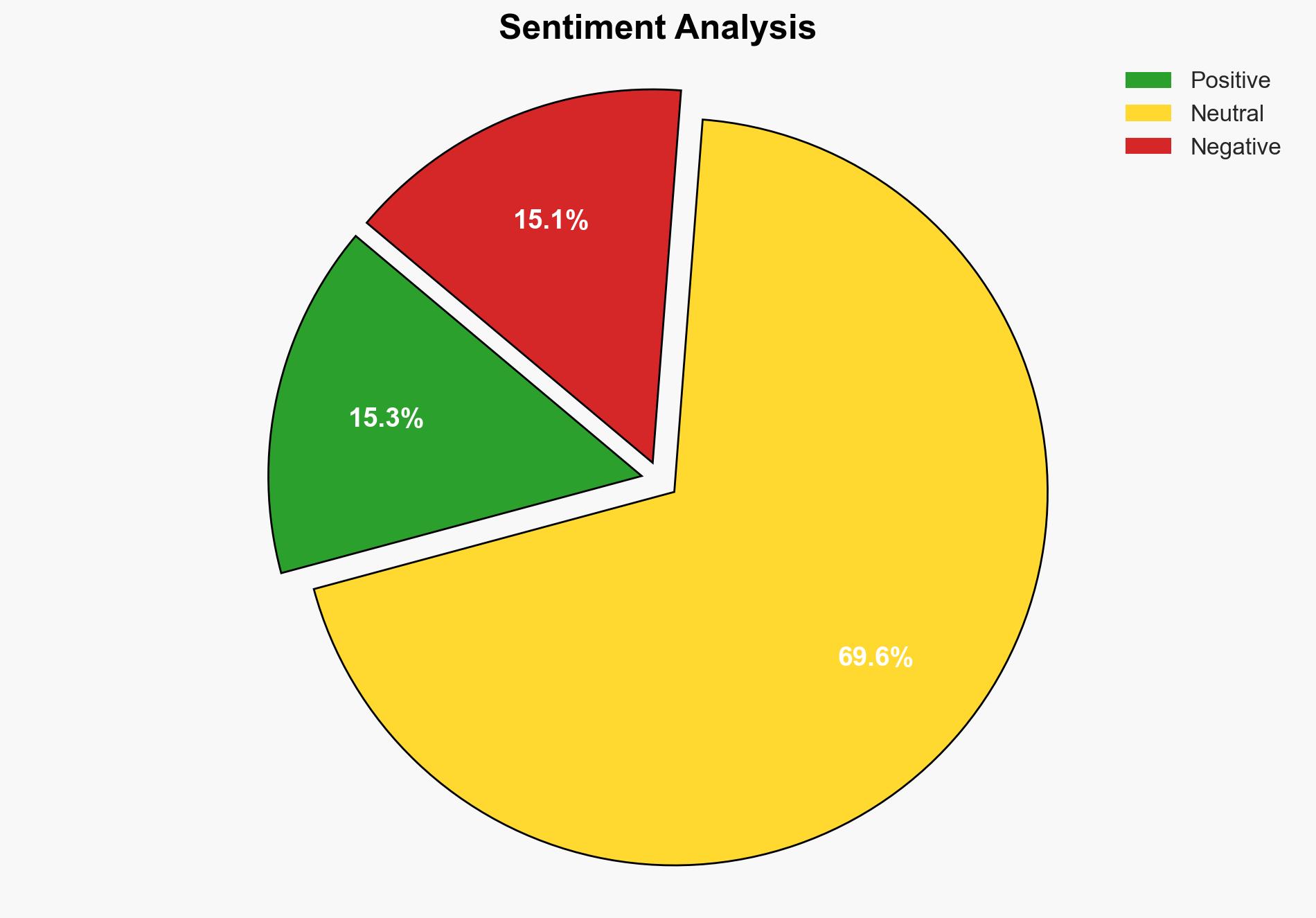US expands export blacklist to keep computing tech out of China – The Verge
Published on: 2025-03-26
Intelligence Report: US expands export blacklist to keep computing tech out of China – The Verge
1. BLUF (Bottom Line Up Front)
The United States has expanded its export blacklist to prevent China from acquiring advanced computing technology for military purposes. This move, announced by the Department of Commerce’s Bureau of Industry and Security, aims to block foreign access to cutting-edge American chips. The blacklist now includes entities based in China, Iran, Taiwan, Pakistan, South Africa, and the United Arab Emirates. The restrictions are intended to hinder China’s development of high-performance computing capabilities, quantum technology, and advanced artificial intelligence. This action reflects ongoing efforts to safeguard national security by preventing the misuse of American technology.
2. Detailed Analysis
The following structured analytic techniques have been applied for this analysis:
General Analysis
The expansion of the export blacklist is a strategic measure to curb China’s access to critical technologies that could enhance its military capabilities. The inclusion of entities from multiple countries indicates a broad approach to addressing potential threats. The focus on high-performance computing and quantum technology highlights the areas where the US perceives significant risks. This decision aligns with previous policies aimed at restricting technology transfer to foreign military entities.
3. Implications and Strategic Risks
The blacklist expansion poses several strategic risks and implications:
- National Security: The restrictions aim to protect US national security by limiting the technological advancements of potential adversaries.
- Regional Stability: The move could escalate tensions between the US and China, potentially affecting regional stability in Asia.
- Economic Interests: The restrictions may impact US companies like Nvidia, AMD, and Intel, which have significant business interests in China.
4. Recommendations and Outlook
Recommendations:
- Enhance monitoring and enforcement mechanisms to ensure compliance with export restrictions.
- Engage in diplomatic efforts to mitigate potential backlash from affected countries.
- Support domestic technology development to reduce dependency on foreign markets.
Outlook:
Best-case scenario: The restrictions effectively prevent the misuse of American technology, enhancing national security without significant economic repercussions.
Worst-case scenario: The move leads to a trade war with China, negatively impacting global supply chains and economic growth.
Most likely outcome: The restrictions will face challenges but will gradually lead to a realignment of technology supply chains, with mixed economic impacts.
5. Key Individuals and Entities
The report mentions significant individuals and organizations:
- Jeffrey Kessler
- Nvidia
- AMD
- Intel
- Inspur Group
- Beijing Academy of Artificial Intelligence





